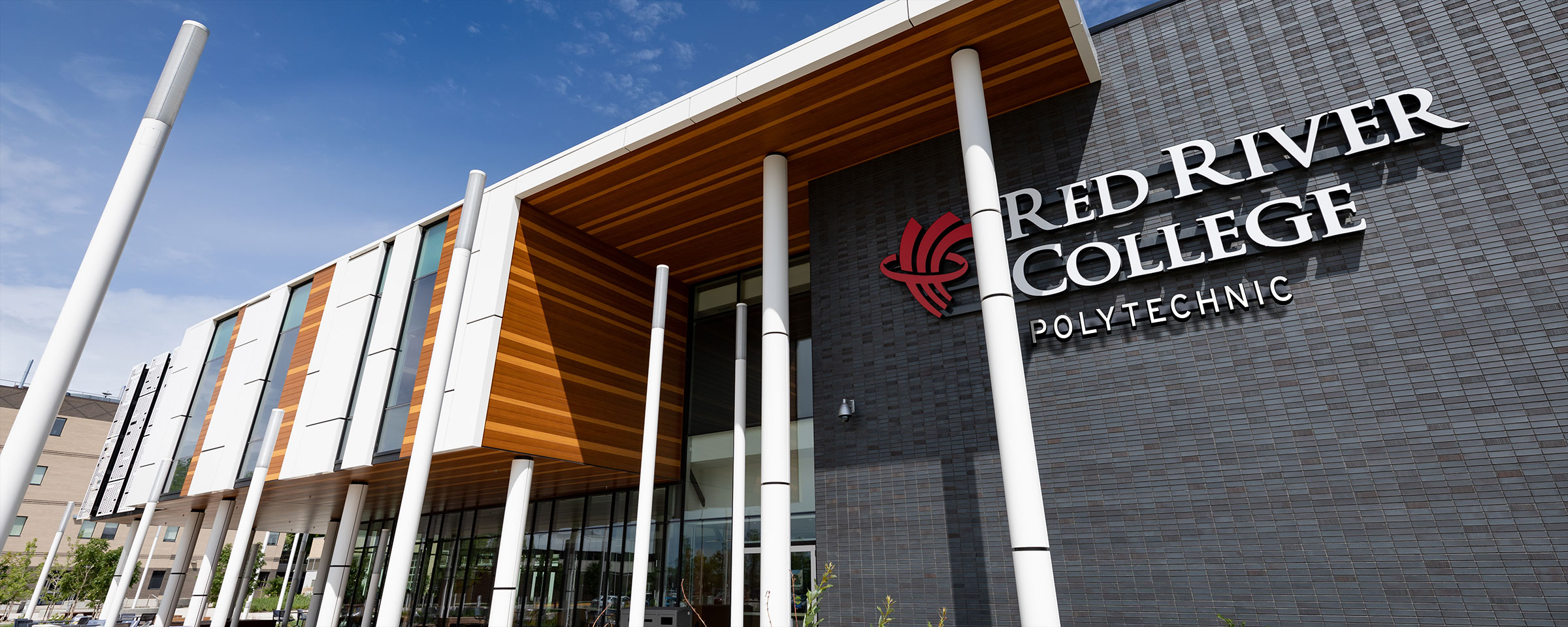RRC delivers tools to help build Indigenous communities
Unique community-based training underway in Lake Manitoba First Nation and Sagkeeng First Nation
For immediate release: November 9, 2017
Winnipeg, MB – Red River College has launched two programs designed to take education outside of the traditional college setting and into smaller, more remote Manitoba communities in order to help Indigenous learners gain the tools they need to enter careers in carpentry, plumbing and the trades.
One of the programs – the first of its kind to be delivered by RRC at Lake Manitoba First Nation – involves 15 students completing level one carpentry apprenticeship training right in their home community, while helping renovate local infrastructure as part of their training. The other program at Sagkeeng First Nation is Intro to Trades and Pre-Employment Plumbing, which is being delivered through RRC’s mobile training labs (MTLs).
“These community-based training programs are an important example of how Red River College is helping create more pathways to post-secondary education for Indigenous learners in Manitoba. This is one of our key priorities,” said Rebecca Chartrand, RRC’s Executive Director of Indigenous Strategy.
“Classes like the one in Lake Manitoba First Nation provides learning opportunities to students who might not be able to access education otherwise. It allows students to remain in their homes and stay connected to family and other support systems, while receiving vital training and doing hands-on work in their community and the surrounding areas.”
The Lake Manitoba First Nation training is a 12-week program delivered in partnership with Apprenticeship Manitoba combining theory, safety training and practical learning. It is being delivered in a classroom within the community’s middle school industrial arts and shops area. Many tools and supplies are being provided by the College, and the students are being taught by an RRC instructor and journeyman carpenter.
“I have always enjoyed working with my hands, so it’s been great to learn a trade that’s in demand everywhere and be able to complete this training right here at home,” said 23-year old Kevin Choken, one of the students who was born and raised in Lake Manitoba First Nation, where he lives with his wife and children.
“It’s encouraging to gain experience using our training and problem solving skills to find solutions for these projects. Carpentry is something I can see myself doing for the rest of my life, so I hope to continue my education and training in the future, and contribute to the renovations and development of my community.”
Lake Manitoba First Nation has been a key partner in the project and hired the students to work on renovation projects and complete apprenticeship training hours within the community. Over the last few months, students have been accumulating practical experience hours conducting interior renovations, replacing windows and doors, and repairing roofs.
The program focuses on the study of material sciences and training on the use of hand and power tools and stationary machinery. The 15 students – including two young women – have been learning skills such as how to layout buildings using a builder’s level, and mixing and pouring cement for slab work, walls and floors.
Once training is complete, students will have their level one carpentry certificate, which allows them to apply for carpentry work or pursue more training in the future.
RRC’s mobile training labs (MTLs) hit the highway every academic year to support the delivery of quality trades training and classroom-based training to rural and northern Manitoba communities. The portability of the training labs allows RRC to deliver nationally-recognized trades training such as automotive, carpentry, electrical, machining, pipe fitting, plumbing, welding and industrial mechanics, based on the training needs of the specific community.
Each year the College uses the MTLs to support the community-based delivery of two five-month Introduction to Trades programs for rural and Indigenous learners. The program at Sagkeeng First Nation was completed in September, and the Pre-Employment Plumbing Program – which wraps up in spring 2018 – will be followed by Intro to Trades programs in Selkirk in January 2018, and Steinbach and Winkler over the 2018/19 academic year.
More information about Red River College’s Mobile Training Labs is available here.


